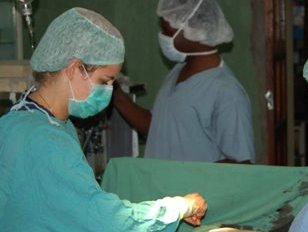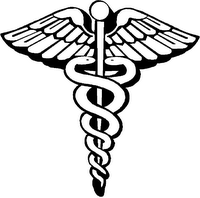Florida woman lobbies for cervical cancer awareness
Washington, DC
The 26-year-old Fort Pierce, Fla., resident came here recently to be an advocate for cervical cancer, the disease that took her sister's life four years ago.Cervical Cancer Misdiagnosed / Misread Pap Smear Test Malpractice Attorney
Seven months after being diagnosed with cervical cancer, Heather Martin died. She was 28 and uninsured.
"I have to do what I can to get Heather's word out there," Martin said. "And that's what she wanted. I don't want another woman to go through what I went through."
Lung, breast and colorectal cancer all outrank cervical cancer in causing deaths among women, according to the Centers for Disease and Control and Prevention. But cervical cancer is the easiest to prevent.
Since the introduction of the Pap smear, cervical cancer cases have decreased by 75 percent, said Jacqueline W. Miller, medical director for CDC′s National Breast and Cervical Cancer Early Detection Program, at a congressional briefing Jan. 27.
Martin dedicated her Web site, http://Ihatetumors.org, to Heather's memory. The site sells T-shirts with profits going to cancer charities in Heather's name.
Donna Martin campaigns for cervical cancer awareness after losing her sister, Heather, to the disease when Heather was 28 years old. SHFWire photo by Nikki Roberti
Cervical cancer survivor Tamika Felder contacted Martin after she read Heather's story in a 2006 issue of JANE magazine and saw Martin on "The Tyra Banks Show."
Felder is the founder and CEO of Tamika & Friends Inc., a nonprofit organization that informs people about the reality of cervical cancer.
"We have that bond because cervical cancer has touched both of our lives," Felder said of Martin. "We're forever bonded to one another, and we're in this fight together to make sure no one dies of cervical cancer."
Felder asked Martin to lobby for cervical cancer awareness as a representative of Florida.
Martin spoke with Rep. Tom Rooney, R- Fla., and Jessica Moore, a member of his staff.
The CDC created the Breast and Cervical Cancer Early Detection Program in 1991. The program provides access to breast and cervical cancer screening to low-income women.
However, because of under-funding, only 9 percent of eligible women ages 18 to 64 nationwide were screened for cervical cancer in 2009, said Mona Shah, senior policy analyst for the American Cancer Society, at the congressional briefing.
Cervical cancer gets less public attention than breast cancer, Martin said, which leads to under-funding and lack of awareness.
For this reason, Tamika & Friends Inc. took the issue to members of Congress. "They are the ones who can bring in the federal dollars that can make sure awareness is made," Felder said.
Martin said Rooney and Moore were willing to spread the word about cervical cancer prevention.
"How loud do you have to shout before people hear?" Martin said. "She may not have insurance, but she's my sister. How would you feel if it was your daughter, your girlfriend, your wife - someone you cared about?"
Now back in Florida, Martin said she hopes to make her Web site a nonprofit and take the next step in making a difference.
Martin's mother died when she was 18, and her father died just as Heather was diagnosed. Martin held all of their hands as they died. While she admitted it was terrible, she is grateful for the time she had with them.
"But you know what? Now they live through me," she said. "I have three people I have to live for. I have to do what I can."
Cervical cancer by the numbers
The American Cancer Society's most recent estimates for cancer of the cervix in the United States are for 2009:
* 11,270 new cases of invasive cervical cancer (cancer that has spread beyond the cervix)
* 4,070 deaths from cervical cancer
Florida Rates in 2005*
Cervical Cancer incidence rates 2005: 8.7-12.8
Cervical Cancer death rates 2005: 2.5-2.8
*Rates are per 100,000 and are age-adjusted to the 2000 U.S. standard population.
Source: the Centers for Disease and Control and Prevention Cervical Cancer Statistics
Labels: Cervical Cancer Awareness







